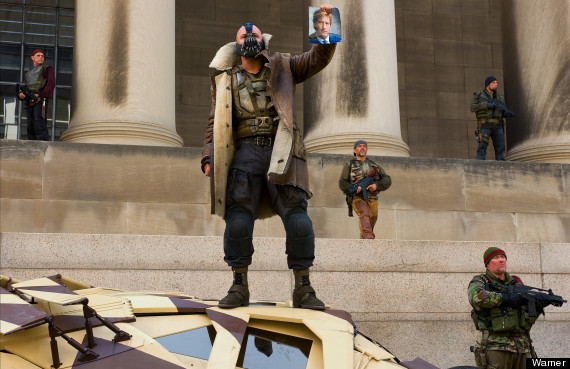What
is there to say about ParaNorman, the
new animated kids horror-comedy heavily touting itself as being from the makers
of Coraline. Well, firstly that it’s
no Coraline, though at least you can see
that it’s trying to wear get up from the same costume chest.
Right
from the opening moments, it’s clear that ParaNorman
doesn’t quite have what it takes. It just doesn’t seem to understand the world
at all. The jokes aren’t funny, the drama is overwrought, the characters run
into clichés very quickly if they didn’t begin
that way. If it weren’t a movie specifically intended for kids, a reviewer
could get very frustrated.
All
of that said, ParaNorman isn’t exactly
bad so much as it isn’t much of anything.
The
plot runs thus: Norman Babcock (voiced by the now ubiquitous Kodi Smit-McPhee)
is a tween much maligned in in his home town of Blithe Hollow for his ability to speak to the
dearly departed. When his uncle (John Goodman, having more fun than anyone else
here), who shares his talent, passes away, it is revealed that Norman is the
heir to the legacy of annually preventing the awakening of a centuries old
witch, whose backstory is also the town’s primary tourist attraction, and a
small army of zombie Puritans. Of course, inevitably the witch’s curse is
activated and Norman
must ally himself with a team of unlikely helpers to force the witch back into
her grave before she destroys the entire town.
 |
| Yes, the fat nerd has a heart of gold. Try and look surprised. |
It
sounds like a solid enough plot and with a few elements in play to make it
different from every other film with a similar story, it may have worked.
Sadly, the elements of ParaNorman that do stand apart are
largely minor and often not targeted at the child audience.
What
is perhaps an eyebrow raiser is how cynical the film is for a children’s movie.
It is absolutely assumed that people will always act at their worst; the adults
are wan, drawn and thwarted and very little hope for anything better break
through, even in the denouement.
That’s
potentially interesting, given the subtext of the film is about the
relationships between bullies and victims, including some fairly cloying but
not inaccurate commentary about how those roles can sometimes be reversed.
Also,
somewhat surprising is the frank take the film has on child sexuality where
Norman’s putative friend Neil (Tucker Albrizzi) is very clearly shown as having
an overt sexual interest in adult women and whose older brother Mitch (Casey Affleck) is openly goggled as a
sexual object, including gratuitous underwear and towel-clad sequences.
 |
| It's important to teach kids poor body image from an early age. Presumably the terrible hair is to distract you from his underwear? |
Considering
Neil’s aerobics models asses and jock brother Mitch’s shirtlessness are both
animated, it’s less likely they’ve been thrown in to titillate the young
audience so much as that filmmakers Chris Butler and Sam Fell simply assume
that these are already quotidian aspects of their lives. I’m not sure I
entirely disagree.
It is worth mentioning briefly the visual of the film which is actually fairly impressive as it blends CGI, modelwork and, if I'm not mistaken, even some live shooting. the supernatural touches as the witch's curse really takes over the town are particularly well-flourished and Norman's final confrontation with her is as visually satisfying as the cryptic finale of an anime piece. Presuming you like that stuff.
Indeed, to
be fair to ParaNorman, it handles visuals and action sequences fairly well, which is perhaps its real hand-me-down from Coraline, given that the theme and setting didn't gel. The third act, where events go truly
paranormal, is certainly the saving grace of the film. There’s just not enough
here to recommend this for anything above DVD viewing.













